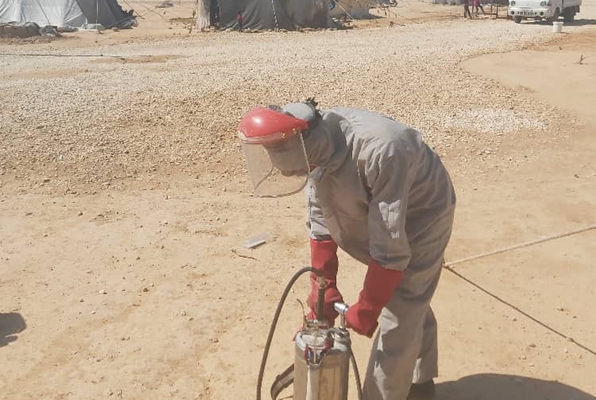Intensified disease management (IDM) aims to increase access to disease management practices, such as diagnosis and treatment, in regions with a high risk of diseases.
The integration of intensified disease management into neglected tropical diseases programmes aims to reduce the consequences of these diseases like lymphoedema, hydrocele (caused by Lymphatic Filariasis) or skin lesions caused by cutaneous leishmaniasis.
For example, MENTOR mobile clinics in Syria improve access to leishmaniasis diagnoses and treatment services, helping to reduce the suffering of people with lesions and ensure their inclusion.
MENTOR also helps to strengthen health systems and create effective referral practices for cases of debilitating diseases and their signs and symptoms. These include conditions such as hydrocele and lymphedema, which cause significant physical and psychosocial disabilities.
Efficient referral systems and promoting early detection makes sure that people affected by these conditions receive timely and quality care.
Working with local health systems and stakeholders, we aim to create sustainable systems that provide equitable access to diagnosis, treatment and referral services. By addressing the barriers to access and promoting disability-inclusive practices, we help reduce the harmful effects of neglected tropical diseases.


